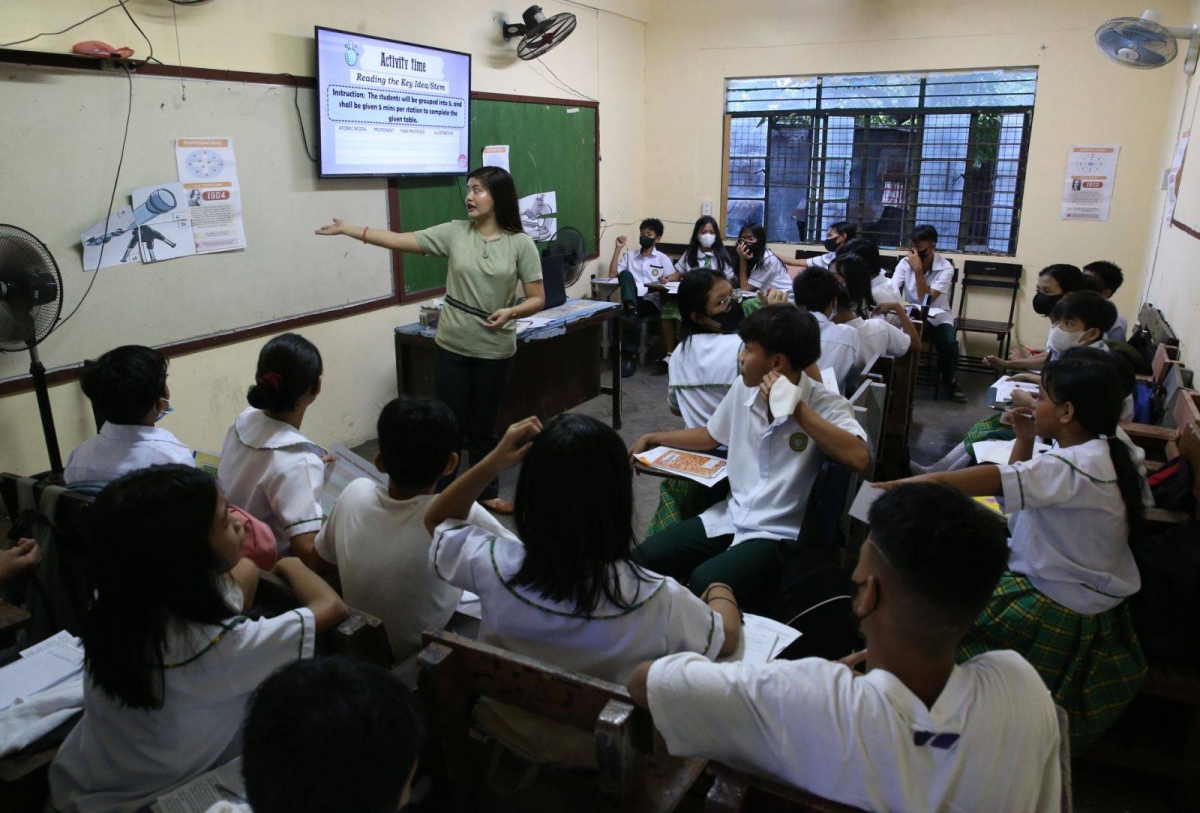Two prominent education experts have recently raised concerns and called for significant reforms in the Philippines’ educational system. In light of the country’s poor performance in the Program for International Student Assessment (PISA), these experts have urged the Department of Education (DepEd) to decentralize its governance structure and take immediate action.
During an online interview, Fr. Bienvenido Nebres SJ, a member of the Second Congressional Commission on Education (Edcom 2) advisory council, emphasized the need for greater autonomy in implementing the curriculum. He suggested that the DepEd should have more decision-making power at the regional or divisional level, considering the vast number of teachers and schools in the country.
Nebres highlighted the current limitations, stating, “I don’t know if you realize that there are only three signing authorities: the secretary, the division secretary, and the principals … but you have 800,000 teachers, 45,000 elementary schools … we have to find a structure that is more decentralized so that it can be more effective.”
Dr. Allan Bernardo, a professor at De La Salle University and member of the Edcom 2 Standing Committee on Basic Education, also expressed concern over the PISA results. The Philippines consistently ranks among the lowest performers in math, reading, and science. Bernardo stressed the profound impact these results have on the educational performance of the younger generation.
“The results still show that over 80 percent of students who participated in PISA were still performing below expected standards … so you can imagine what are the implications of this generation of young people who we expect to contribute to our economy in the next 10, 20, 30 years, who can’t do math,” Bernardo explained.
Furthermore, Bernardo noted that the socioeconomic status of Filipino students does not significantly affect their PISA performance. This implies that the entire education system is underperforming, regardless of the students’ backgrounds or the resources available to them. Even those studying in well-resourced centers are not performing at the same level as their counterparts in other countries.
The experts believe that the PISA results should serve as a wake-up call for urgent education reforms. Bernardo emphasized the need to move beyond simply acknowledging the poor results and to take concrete actions to address the underlying issues. He stated, “We need to stay focused on these bad results and go beyond just feeling bad about them. Because there is a lot in PISA that we can learn from.”
Edcom 2, currently in its first year of operation, is actively working towards implementing these much-needed reforms. The panel is collaborating with the Philippine Institute for Development Studies, De La Salle University, University of the Philippines, and Ateneo de Manila University on over a hundred research projects. These projects aim to provide valuable insights and recommendations for improving the education system.
The panel expects the reforms to be in place within the next two years, recognizing the urgency of the situation. By decentralizing the governance structure and addressing the deficiencies highlighted by the PISA results, the DepEd can create a more effective and inclusive educational system.
It is crucial for the government, educational institutions, and stakeholders to come together and prioritize the necessary reforms. The future of the Filipino youth and the country’s economic development depend on a strong and resilient education system that equips students with the skills and knowledge they need to succeed in the global arena.







